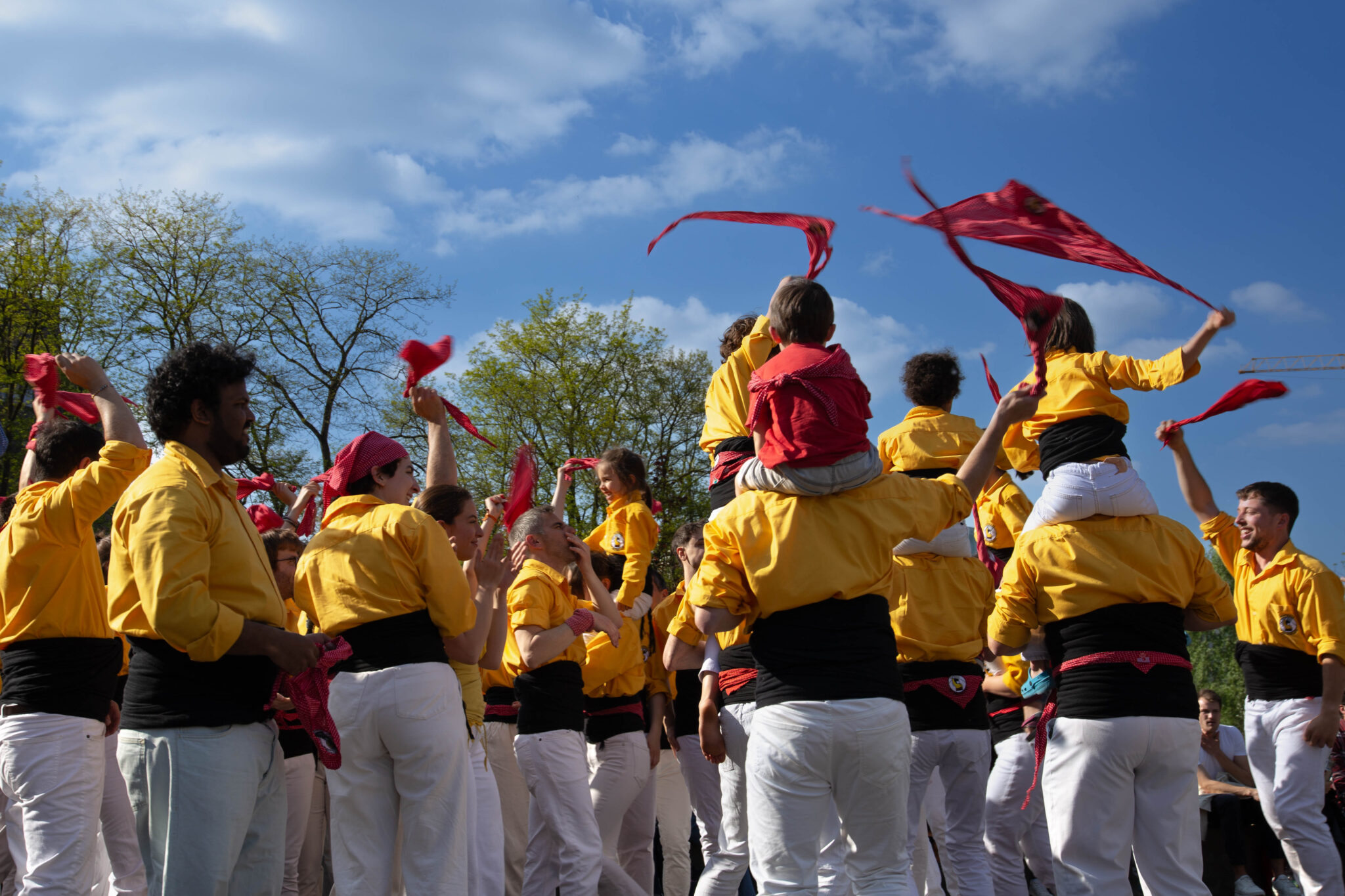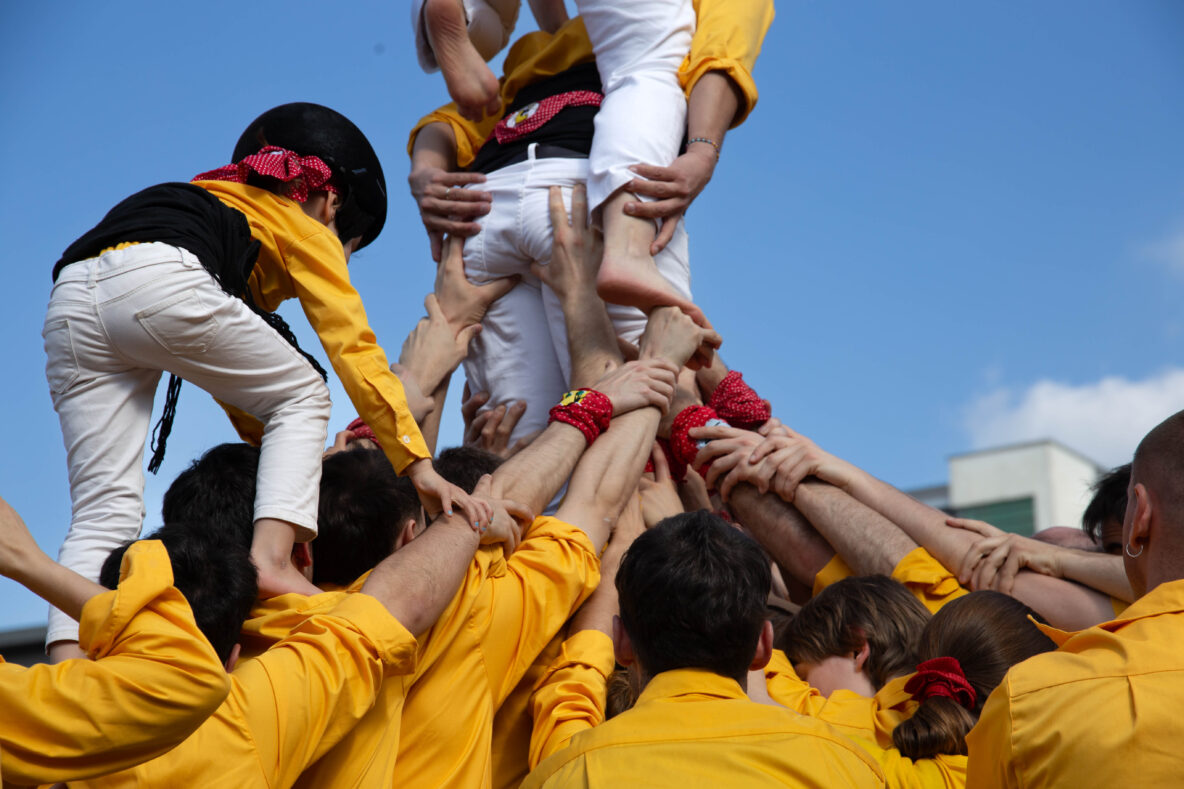Kids are shouting and running all over the place. Adults are still chatting when a loud voice cuts through the noise: “Van silencí!” yells Joan. Instantly, the group of around 40 people falls silent. The mood shifts from laughter and conversation to focused attention.
The atmosphere is unique in the small patio in front of a dance school in Schaerbeek, surrounded by high brick walls. Old microwaves, cooking pots, piles of books, vintage furniture, and chandeliers give the place the familiar, dusty charm of a grandparent’s attic.
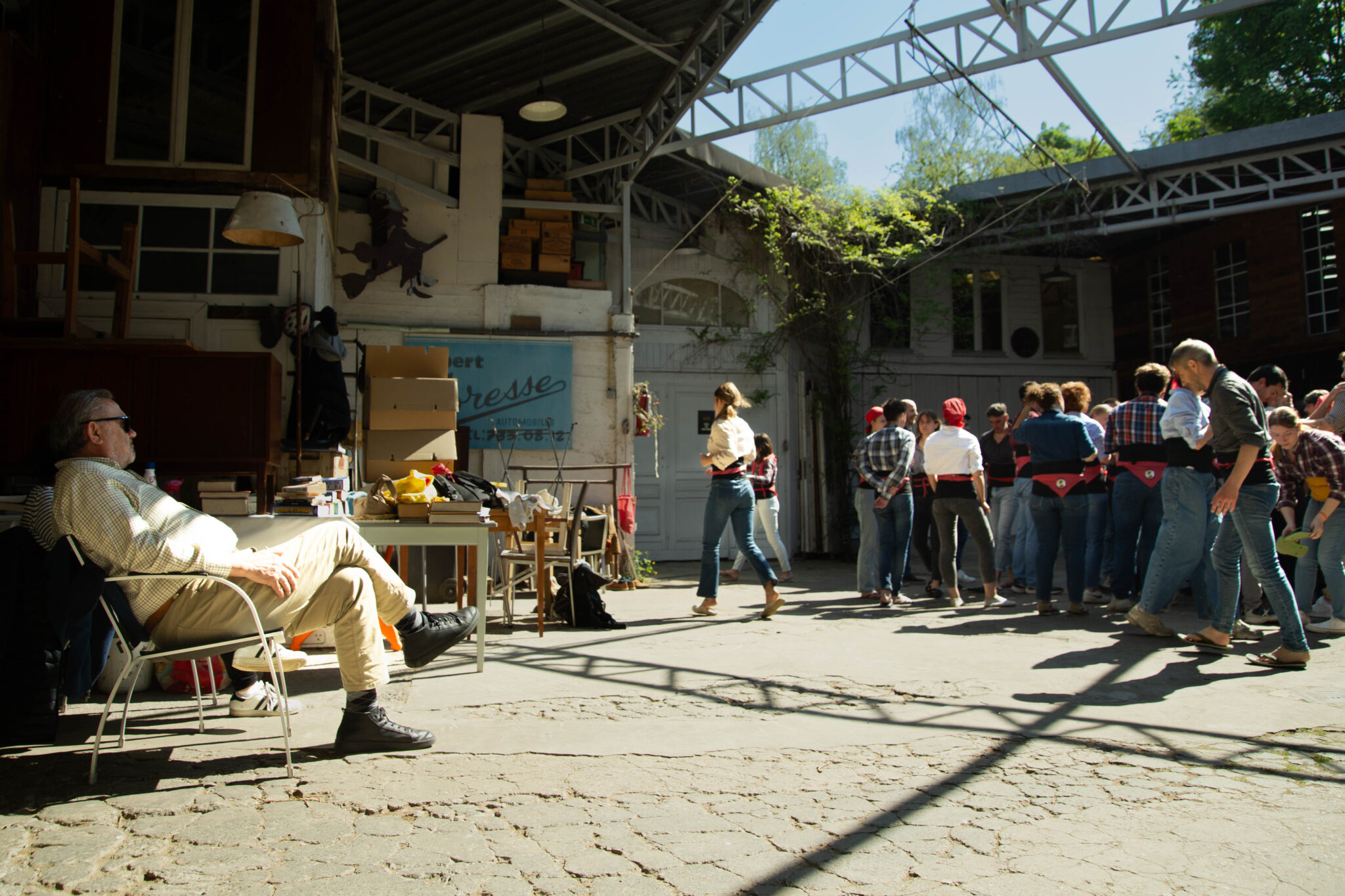
In this unlikely setting, a Catalan tradition takes root. The colla, the term for a Castellers team, begins rehearsal. They’re preparing for a major international exhibition in Berlin, where human tower teams worldwide will gather to perform.
“It’s an exhibition, not a competition,” says Joan, the cap de colla, or team leader, of the Mannekes, the only Castellers group in Brussels. They’re not competing against each other. This is a cultural activity, not a sport.
Twice a week, the Mannekes meet to rehearse their towers, called castells, a tradition recognized by UNESCO. The principle is simple yet powerful: people standing on people, forming multiple floors with a strong, wide base to support those who climb.
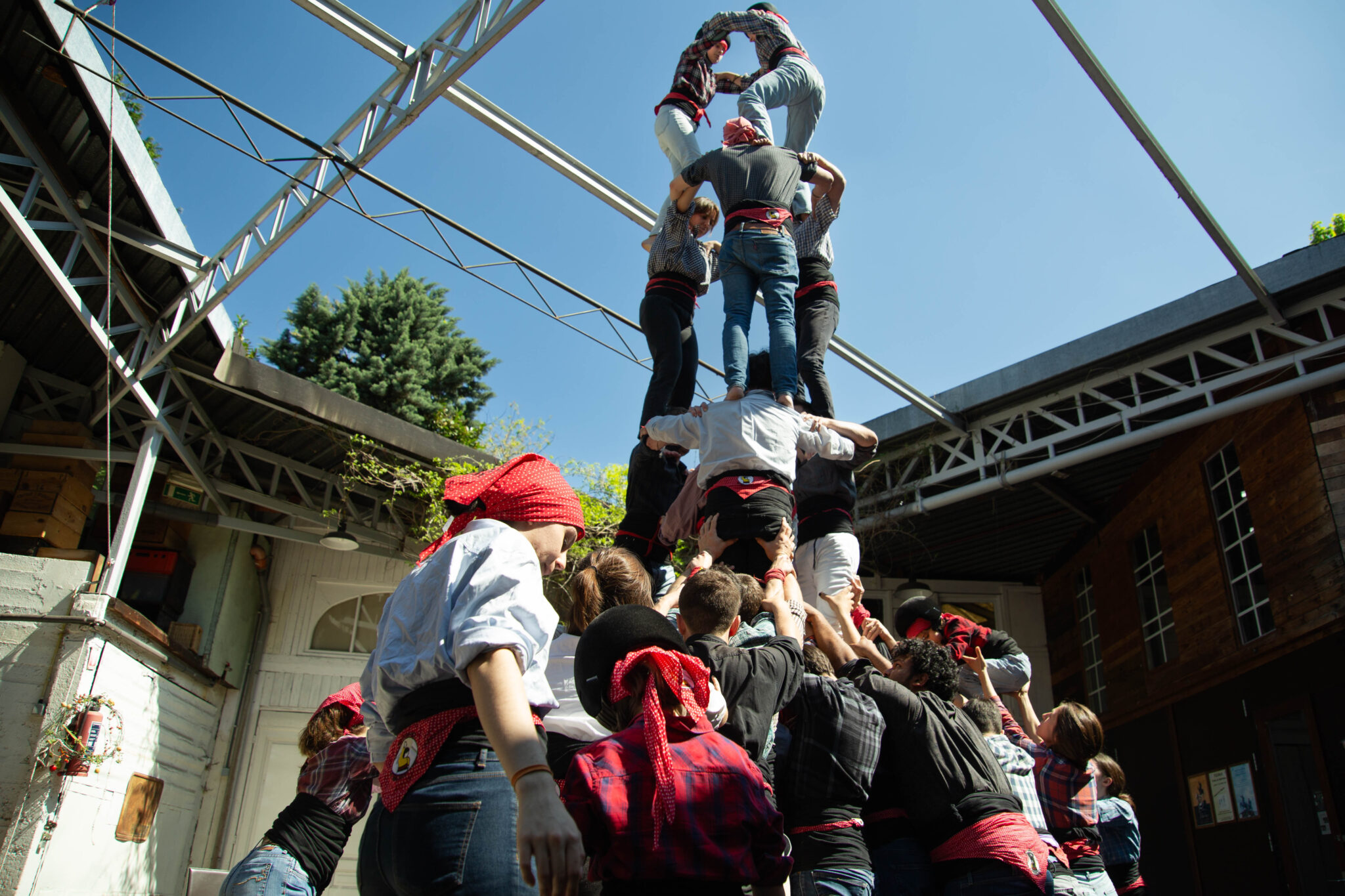
In this activity, touch is the glue of your structure. Trust is everything. Here we build a family, a team. I didn’t cry as much as the day we made our first six-level castle. It’s not about how high you reach, but what it means for the group.
Joan
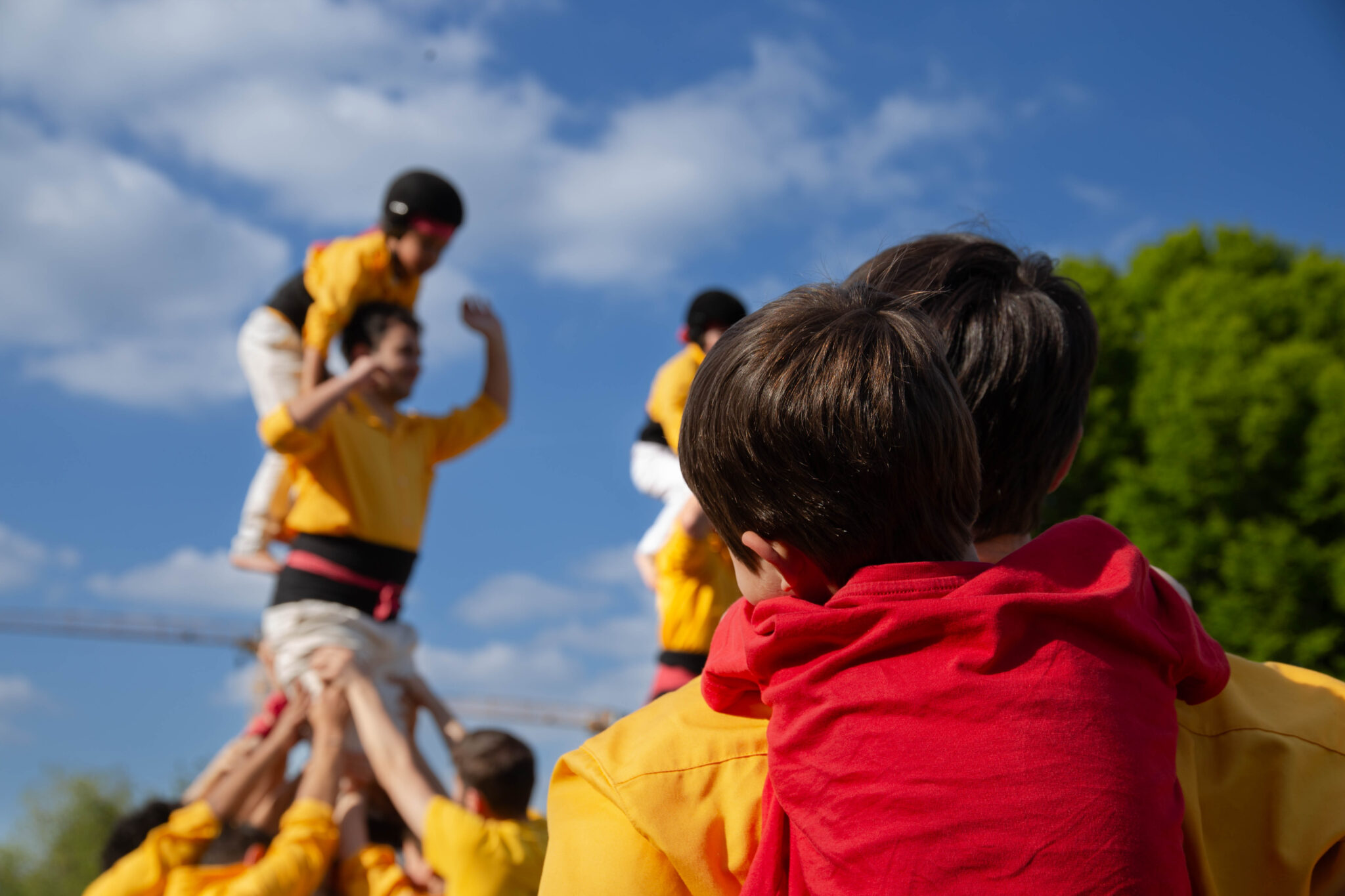
A chosen family
Joan founded the Mannekes only a year ago, alongside Sofia and his wife, Laia. In that short period, they succeeded not only as castellers but also as a safety net for all newcomers arriving in Belgium.
“The further you are from your tradition, the closer you want it to be. Most of us weren’t even doing Castells before.”
Sofia
The Mannekes welcome anyone who wants to share in Catalan culture. For Marta, who came to Brussels for a last-minute internship, the group became a cure for homesickness and a way to find community in a new city.
The colla is diverse not just in nationality, but in age, size, and background. Joan explains:
“You can’t do Castells without diversity. You need tall people, short people, wide people, thin people, kids, older folks; you need everyone. If you don’t have everyone, you can’t build the tower. That’s the bottleneck of this activity.”
The climb and the catch
But even with the right people, the towers sometimes shake.
“Don’t push, don’t push!” Joan shouts as tension rises.
To outsiders, the tower might look improvised. But every role is carefully assigned. At the base is the pinya, a layered structure like a human Russian doll. Each layer presses inward, transferring pressure to the center.
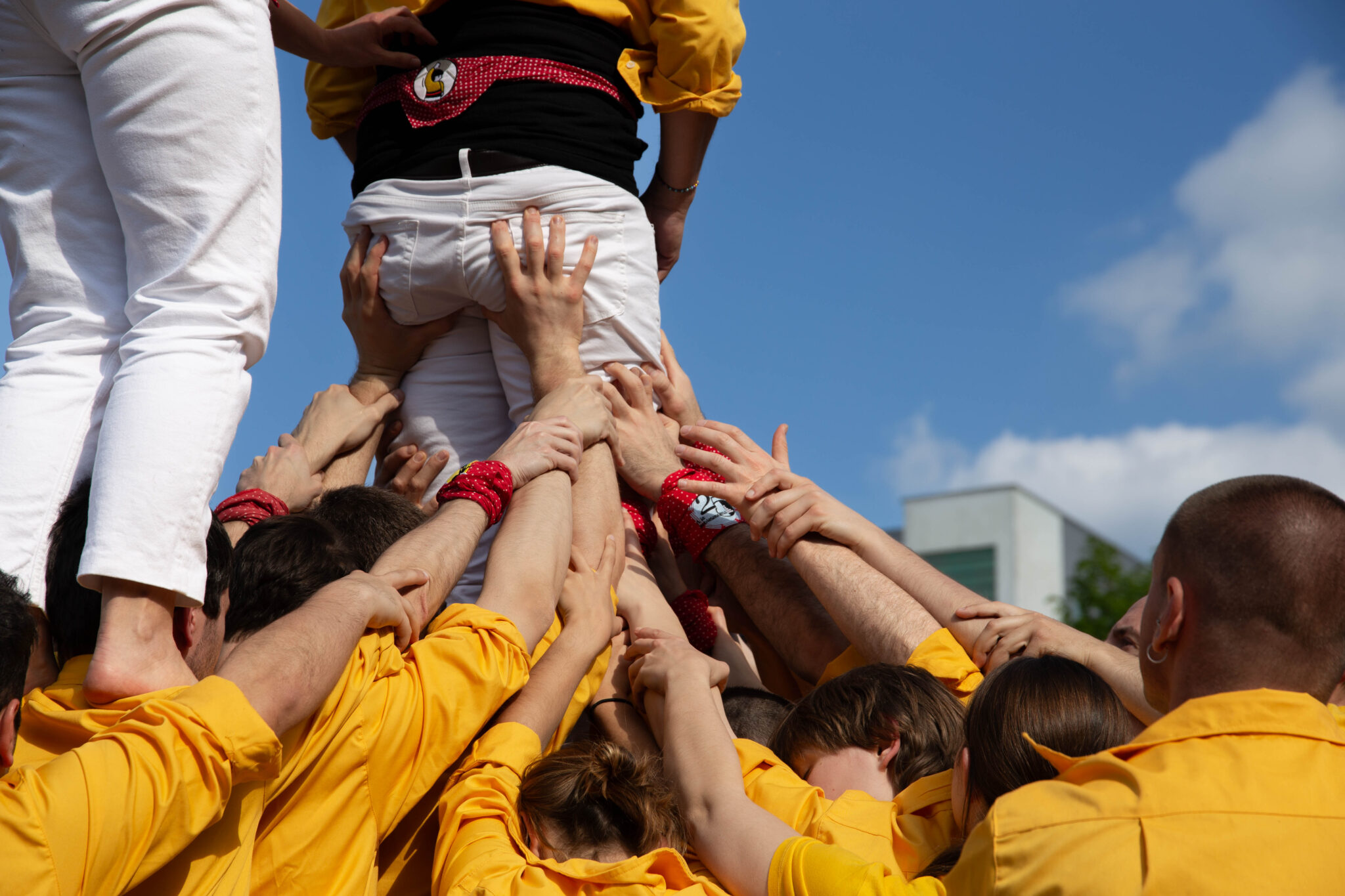
Only once the base is ready does Joan give the green light for the tronc, the central column, to rise.
Now it’s Julia’s turn. At just five years old, she’s the youngest member of the Mannekes. Helmet strapped on tight, she climbs swiftly to the top. On the ground, Laia coaches her every step. As Julia reaches the summit, she raises one hand, mission accomplished.
Once everybody’s feet are on the ground, the atmosphere changes to cheering and celebration of group achievement.
After two hours of practice, the Mannekes head to a nearby park for vermut, a Catalan tradition of enjoying drinks and tapas with friends before lunch on the weekend.
A Catalan spring in Brussels, tradition in bloom
Rehearsals in April are busy, not only for the Berlin event, but for another beloved Catalan celebration: La Diada de Sant Jordi, on April 23rd. On this day, men traditionally give roses to women, who in return offer them books. For Marta, it’s “the most beautiful day of the year”, not just as a book lover, but because it’s the day she met her partner.
This year, the Mannekes are performing at a special event organized by Casal Català at Maison des Anciens, a cultural venue on the Brussels university campus. Inside, Catalan books are laid out on stands. Nearby, tall, dark-red roses wait in large buckets, ready to be exchanged.
As the sun warms the Saturday afternoon, people chat and sip drinks outside. Twenty minutes before showtime, yellow shirts begin to appear in the crowd. The Mannekes are getting ready.
Wearing yellow shirts and white trousers, they stand in pairs, wrapping long black scarves around their waists, both as back support and a climbing grip. On top of each scarf, a small rolled bandana signifies their colla, though some wear several, marking experiences in other groups.
“Francesc, Pau, Gerard, Xavier,” Joan calls out. The first layer begins forming the pinya. Suddenly, amid the yellow, a white shirt appears. With some members missing, audience members are invited to help stabilize the tower’s base.
To the poignant sound of a music troupe, playing on traditional Catalan instruments in rhythm with the colla, they present figure after figure.
One hour passes. The event ends, bringing everyone to dance and jump in celebration of their shared accomplishment. Bandanas in one hand and kids on shoulders, everyone cheers to close the day, and heads to the bar for a well-deserved beer, which also has its special place in the Mannekes’ history.
To choose the right color of our shirts, we ordered different beers. And we said, ‘This one! These toasted pils, this is the one!’ But I don’t remember the other colors… because we drank them.
Joan
